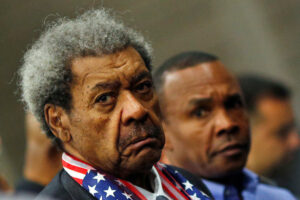We’ve all done it…
Set up the board, dished out the money and tried to employ our own brand of twisted logic, attempting to dominate London’s property market, armed with a small metal top hat and a bit of ‘free parking’ (other player pieces are available). Monopoly, the king of board games, forms an integral part of Christmas time in many households, ruining relationships and forcing you to forge tactical bonds with extended family members you’ve barely spoken to.
Buy the cheap properties and lavish them with little green houses? Burst the bank and throw your savings at the most expensive, vacant lots, hoping for a very particular roll of the dice at every opponent’s turn?

The game runs for hours at a time, returning to boards the following morning, armed with leftovers. Player’s grip on the game starts to slide, negotiations become hostile and often those who’d remained steady – investing in the pinks and oranges of the board – prevail. Some enthusiastic young participants will throw money at EVERYTHING, scooping up a brown and a dark green, sitting three rolls apart. Of course, their empire will be tougher to structure- but if they’ve left little for their peers, they could, for want of another word, monopolise.
I’m a notoriously snide Monopoly player. I’ll try and sneak extra money from the bank, I’ll suggest ridiculous trades with less experienced rivals, I’ll hide any negative ‘Chance?’ cards and keep a straight face throughout – shamelessly. I’ve had to turn it up a notch recently, however, with my fiancée’s family taking the game almost as seriously as I do. I like winning too much to play by the rules – the younger generation won’t spoil a reputation years in the making…
After playing a game of Monopoly last week, I began spotting similarities between the Hasbro creation and the sport of boxing, namely those promotional companies vying for dominance in the current, complex market. Below, I’ve detailed three categories for consideration and must state that these are trademarked by me (kind of). So, if you see Monopoly hijacking my terminology, please contact Boxing Social, at once.

‘Buy now, plan later, pray we keep passing go…’
In a mad panic, on the first available ‘buying’ round of Monopoly, these players are scooping up everything. Smaller properties or expensive locations, seemingly with no rhyme nor reason. You end up with a cheap brown on its own, a couple of pinks, a random yellow and train station – standing alone, in hope rather than expectation.
After the launch of OTP service, DAZN, it could be argued that Matchroom Boxing approached their roster in this fashion. Eddie Hearn and his merry band of modern money men began their assault on the sport, signing up names such as; Demetrius Andrade; Srisaket Sor Rungvisai; Jarrell Miller; Oleksandr Usyk and Dmitry Bivol. They were established champions, but not quite amongst the upper echelons or the sport’s heavy needle-movers. As well as this, they snapped up amateurs, such as Otha Jones III, Mahommedrasul Majidov, Israil Madrimov or Shakhram Giyasov.
They are covering all bases, buying whatever becomes available and seemingly planning as the progress. It’s a strategy which should reap rewards at times, with some fighters becoming household names and bouts between two promotional stablemates becoming possible – with belts and money kept in house. However, plenty of fighters will be left punching shadows, gathering dust and becoming less valuable commodities – though still not bringing in money for Matchroom’s opponents, at least.

‘Hit the one in the middle (of the board), that’s all I could afford…’
There is the theory that slow and steady wins the race, in Monopoly especially. Nothing too crazy. Buy what you can afford, build when you can and stay away from high risk negotiations. These players will often stand the test of time, relying on regular rental income from the oranges or the reds, however they are unlikely to stand out/emerge triumphant, as they avoid testing the water.
Boxing’s elder statesmen, Frank Warren and Bob Arum have come to rely on this type of strategy. Sure, Bob promoted Muhammad Ali fifty years ago, but of late, he has continued to build a stable using young prospects such as Michael Conlan or Shakur Stevenson, sprinkled with the odd superstar lacking commercial mass appeal; think Vasiliy Lomachenko in recent years.
Frank has worked with his British contingent, focusing on building challengers with a solid British following, preparing them for world title challenges and tipping the balance from risk to reward almost perfectly. His work with Leeds’ undefeated world champion, Josh Warrington, is the perfect example. Warrington sold thousands of tickets, was never touted as an elite, world-level fighter, yet snatched the opportunity from Warren when it was presented to him. Now, Frank has turned Warrington into a dependable, local attraction.
Shows headlined by names such as Daniel Dubois or Zelfa Barrett show Frank’s faith in the process of creating and developing fighters from the ground up and I wouldn’t expect any dramatic diversion during whatever time he has left in the sport. It works. He’s still firmly in the game.

‘The rent is high, but the house is empty…’
The ‘all or nothing’ type participant. They’ll roll doubles all day, desperate to land on those beautiful navy blues. Appealing, of course, due to their lofty rental prices, but barely visited when playing Monopoly. The marquee purchase, these players will cling onto their property – even if it’s the only two locations they own – turning up their noses at the cheaper options.
Oscar De La Hoya has recently become one of the highest paid promoters in boxing after his client, Saul ‘Canelo’ Alvarez put pen to paper on a lucrative $365m deal with streaming platform DAZN. The Mexican superstar is the biggest attraction in boxing at present, commanding an enormous audience and driving subscribers at both of his annual outings. Without Canelo, however, what does Oscar have?
The burgeoning career of Disney-made fighter, Ryan Garcia, suggests he could become an important asset, but as yet, he hasn’t beaten a name. Canelo is De La Hoya’s Mayfair and quite frankly, other than the red-head, their stable at Goldenboy looks a little thin on the ground. Rumours of fallouts, public Twitter spats between Canelo and the matchmakers at GBP and the very public negotiations between Garcia and De La Hoya have left us scratching our head. Without Canelo, could Oscar survive into the championship rounds?

The art of promotion has changed dramatically with the creation of social media and, as fighters begin taking some of the power for themselves, their worth increases. Streaming, the dissolution of HBO Boxing and the ludicrous number of zeros scrawled on some of the top fighter’s paychecks have added unprecedented pressure for the men in the suits. Stick or twist? Play by the rules?
Monopoly can often bleed into the wee hours of the morning with fatigue often rendering players defeated. Of course, the points made above are tongue-in-cheek, but as boxing begins to split itself into different categories, will it be the forward-thinking entrepreneur who steps ahead of his peers? Or are we simply experiencing modern quirks, as Arum and Warren have overcome previously, still holding their cards close to their chests, remaining steadfast?
Money and possession are the measurement of success in both the board game and the sport of boxing. The highest grossing pay-per-view, the number of viewers at peak time for your main event or the shiny, alphabet lottery banded across the waist of the fighters – success changes hands. The dirty tricks employed by your writer when gathered around the family dinner table, hiding $500 notes and stealing ‘Get Out of Jail Free’ cards are mirrored on a far larger scale, whether it’s dodgy judging or favourable doping sentences.
Don’t forget: it’s a game, at the end of the day…
Feature written by: Craig Scott
Follow Craig on Twitter at: @craigscott209
